Pride is political. What began as an uprising against police violence at the Stonewall Inn has become, in many places, a celebration of diversity. Queer people all over the world celebrate their identities, visibility, and achievements—especially in June, and often beyond. But wherever there is celebration, there is money. And where there is money, businesses and event organizers are not far behind. The result is a trend that has become increasingly visible in recent years: pinkwashing.
Pinkwashing refers to the practice of presenting as LGBTQIA+-friendly without showing real commitment, action, or solidarity. It’s a superficial rainbow-colored marketing tactic, often lacking in substance or meaningful impact. This strategy tends to peak during Pride Month—and with it, the criticism. Many who take part in Pride events now ask: who truly supports us, and who is just profiting from the rainbow?
When the Rainbow Becomes a Marketing Gimmick
Pinkwashing becomes easier to spot when you know what to look for. It’s not just about rainbow colors—it’s about the intent behind them and what actions follow. A company that adds a rainbow to its logo in June but employs no openly queer staff or ignores internal discrimination issues likely isn’t acting in solidarity, but for image and sales.
A common example is a tour operator offering “rainbow tours” during Pride—city walks, excursions, or curated restaurant visits. The ads show diversity, the branding is colorful, but upon closer inspection there’s no connection to the local queer scene. Not a cent of the proceeds goes to LGBTQIA+ organizations, queer history is not addressed, and the tours are designed and delivered by people with little or no connection to the community.
The same goes for small shops or restaurants that hang rainbow flags or offer “Pride drinks” during the week of celebration—only for all signs of support to disappear as soon as the event ends. No queer staff, no inclusive practices, no engagement with the community throughout the year. That, too, is pinkwashing—just on a smaller scale.
Why Pinkwashing Harms the Community
At first glance, rainbow marketing might seem harmless. After all, visibility is good—right? But visibility without accountability doesn’t help. Pinkwashing distorts the meaning of Pride, which grew out of protest, struggle, and political activism. It gives the impression that equality has been achieved, while real challenges remain for many LGBTQIA+ people.
Worse still, it diverts resources and attention from those who need them most. Local initiatives, nonprofit groups, queer artists, and grassroots activists work all year—often with limited funding—to create safe spaces and make change. When businesses dominate Pride spaces without giving back, Pride becomes a stage for profit—not for the people.
Pride Tourism: A Double-Edged Sword
Pride tourism is booming. Many queer travelers seek out major events in cities like Berlin, Madrid, Tel Aviv—or Gran Canaria, where Maspalomas hosts multiple Pride weeks each year. These are spaces of joy, safety, and belonging—and that’s worth celebrating. But even here, it’s worth asking: who truly benefits?
Across the Canary Islands—and in other popular Pride destinations—there are organizers who run Pride-branded tours, events, or parties that clearly target tourists. In some cases, there’s little visible connection to the local LGBTQIA+ community: no partnerships with queer organizations, no revenue shared with local projects, no educational or cultural content. The focus is purely on entertainment, while deeper issues take a backseat. That doesn’t automatically mean bad intentions—but especially during Pride, it’s worth looking closely at how meaningfully these events are rooted in the local community.
This becomes especially clear when businesses only display rainbow flags during Pride week to cash in—offering drink stands, merchandise, or special menus—but show no engagement with LGBTQIA+ people the rest of the year. Without real values behind them, symbols like these quickly feel hollow.
How to Spot Genuine Support
Fortunately, there are ways to tell the difference between pinkwashing and real allyship. With a bit of awareness, we can choose to support those who actually stand with the community.
One key factor is year-round engagement. Those who only speak up in June but stay silent the rest of the year are not allies. Businesses that hire queer staff, use inclusive language, highlight queer issues, and take active steps against discrimination are showing genuine commitment.
Another is transparency. Is it clear where the money goes? Are there collaborations with LGBTQIA+ organizations? Is queer history or culture included in events? Or is it all just for show?
And of course, ask: Who’s behind the initiative? Are queer voices involved? Do they benefit from the project—or are they simply being used as decoration?
Positive Examples from Maspalomas: What Real Inclusion Looks Like
This article offers a general reflection on pinkwashing as a global phenomenon. It’s not an attack on Pride events or businesses. In fact, Gran Canaria—especially Maspalomas—offers many outstanding examples of how Pride, tourism, and community can work together in meaningful ways.
In the Yumbo Center, many bars, restaurants, shops, and venues are owned or operated by LGBTQIA+ community members, and they practice real inclusion every day. Many employ both queer and straight staff in a spirit of openness and respect. These are places where inclusion isn’t performative—it’s normal. And it works: these businesses are successful not because they shout their values, but because they live them.
Larger companies also have a role to play—and in Spain, they’re legally required to. Businesses with over 50 employees must have a diversity plan in place. This legal framework is already being used meaningfully by several hotels on the island, through diversity training, inclusive hiring, and anti-discrimination policies. These efforts often continue beyond the Pride season.
These structures, values, and people deserve targeted support—especially during Pride, when attention (and spending) are at their peak. Because they keep queer life visible, safe, and thriving all year long—not just when the streets are decked out in rainbow.
What You Can Do
The good news: each of us can take action to resist pinkwashing and support real inclusion. It starts with awareness—and leads to everyday decisions.
Support local, queer-run businesses. Whether it’s a café, bar, shop, tattoo studio, or tour operator—if it’s owned or led by LGBTQIA+ people, your support goes further and stays within the community.
Ask questions. Who’s organizing the event? Where does the money go? Are local LGBTQIA+ organizations involved? Who benefits?
Be cautious of rainbow branding with no substance. If a business only shows up for Pride week and disappears afterward, that’s a red flag.
Amplify queer voices. Share experiences, recommend businesses and projects, and help boost visibility for underfunded or grassroots initiatives.
Celebrate—but with awareness. Pride can absolutely be joyful, loud, and colorful. But it should stay connected to the real lives and struggles of LGBTQIA+ people—and to the history that made Pride possible.
Conclusion: Pride Is Not a Campaign—It’s a Movement
Pinkwashing isn’t just a marketing trend. It dilutes the history, purpose, and power of a political movement born from protest. It reduces queer identity to a sales tactic and sidelines real struggles.
But we can push back—through the choices we make, the questions we ask, and the people we support. By doing so, we keep Pride meaningful, grounded, and community-driven.
Gran Canaria is a great example of how things can be done differently. When we look deeper, question surface-level gestures, and choose to support those who are truly committed, we help build something stronger than a one-week celebration.
We help build a year-round community. And that’s something worth being proud of.
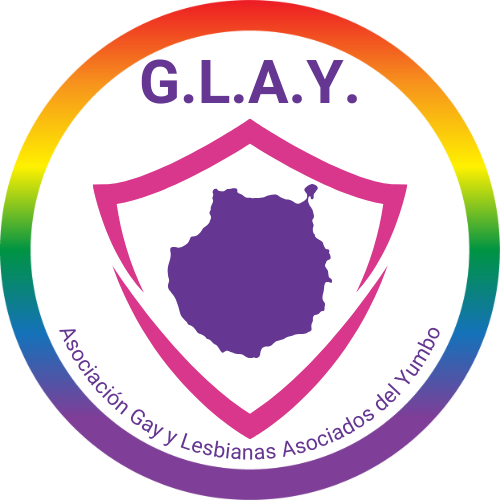



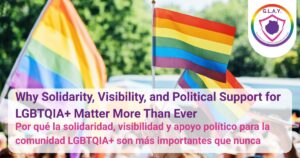
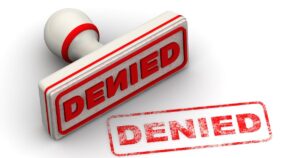

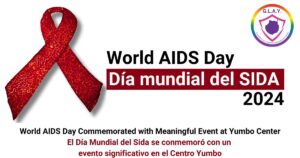
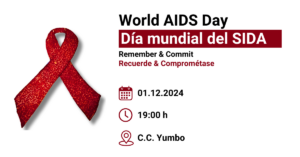
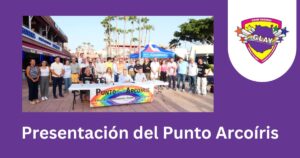


0 Comments